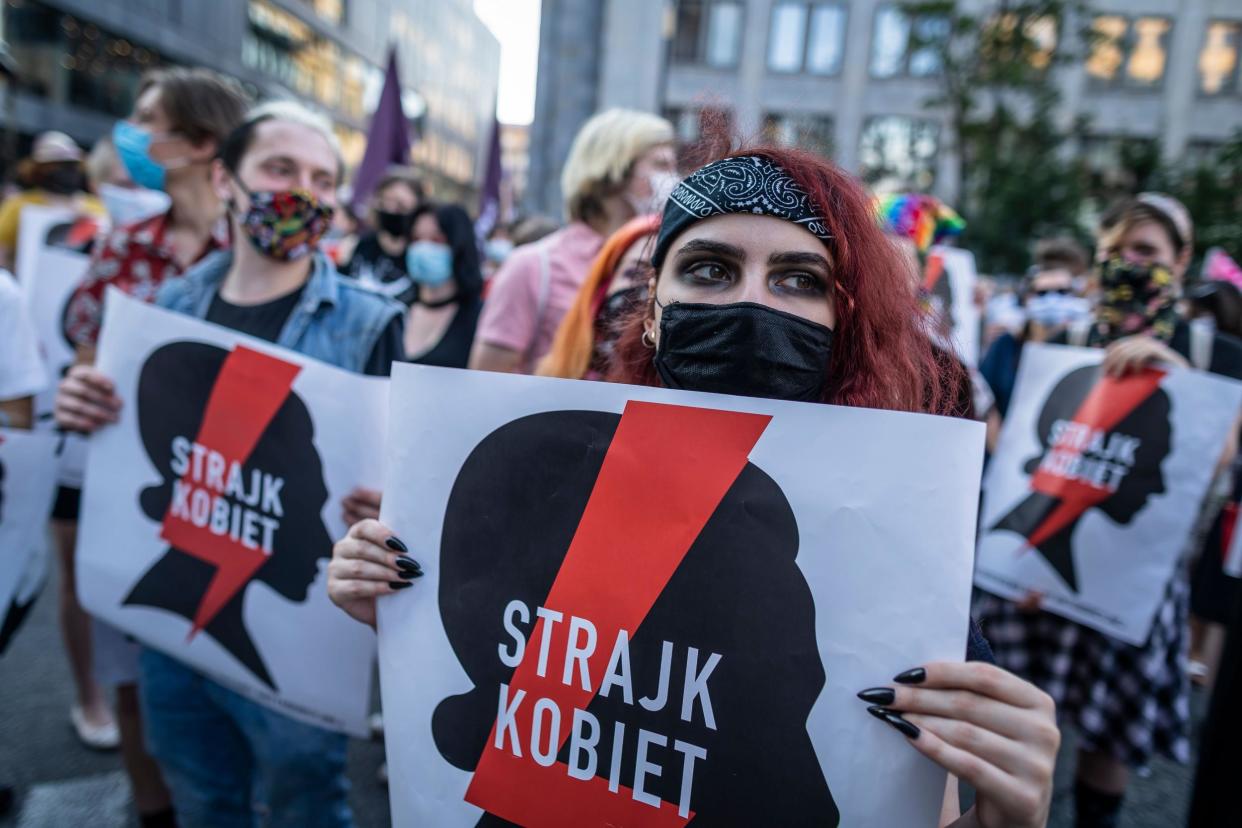Poland to leave pan-European convention tackling violence against women

Poland has announced it will immediately pull out of a pan-European convention which tackles violence against women – sparking anger and consternation.
The Istanbul Convention is the most comprehensive legal framework that exists to tackle violence against women and girls, covering domestic violence, rape, sexual assault, female genital mutilation, so-called honour-based violence and forced marriage.
Zbigniew Ziobro, the country’s justice minister who announced the decision to revoke the treaty claimed it “contains elements of an ideological nature, which we consider harmful”.
His ministry will ask the labour and families ministry to start the procedure of withdrawing from the convention on Monday, Mr Ziobro told a news conference.
Speaking on Saturday, Mr Ziobro argued the treaty was “harmful” as it necessitates schools to teach children about gender – claiming the convention infringes the rights of parents.
But the party distanced itself on Sunday from the justice minister's suggestion and explained not everyone in the coalition supported moves to overhaul the treaty.
Anita Czerwinska, PiS spokesperson, said: “Decisions have not been taken. This is not our common stance. The minister has some idea. If he submits (his proposal) we will analyse it".
Poland ratified the convention, which was drawn up by the Council of Europe, a human rights organisation made up of 47 member states, back in 2015 before the ultra-conservative Law and Justice (PiS) Party were in power.
It comes after tens of thousands of people, predominantly women, descended on Warsaw and other Polish cities to show their opposition to government plans to withdraw from the convention.
Demonstrators shouted “fight against the virus, not against women” while walking through Warsaw on Friday afternoon, and some protesters had banners which said “PiS is the women’s hell”.
The decision to withdraw from the convention comes in the context of campaigners around the world warning domestic abuse has rocketed as social isolation measures have been rolled out in response to the coronavirus crisis.
China saw a threefold increase in cases of domestic abuse reported to police stations in February in comparison with the year before. And domestic abuse has risen during lockdown in the UK – with 14 women and two children killed during the first three weeks, the highest rate for more than a decade, and calls to a national domestic abuse helpline rising by 49 per cent.
The PiS party, which has socially conservative views, has strong links to the Catholic Church and argues the convention contravenes Poland’s Roman Catholic family values.
Britain signed the convention in 2012, making it one of the last EU members to do so – along with Bulgaria, Hungary and a handful of others – but the UK government has been fiercely condemned for failing to ratify it in the eight years since. The UK is not legally bound to follow the convention due to having not ratified it.
Andrzej Duda, the Polish president who is backed by the PiS party, narrowly beat the liberal Warsaw mayor, Rafal Trzaskowski, to win a second five-year term in a fierce election earlier in the month.
Mr Duda, who has argued LGBT+ rights is an “ideology” more destructive than communism, promised to outlaw same-sex marriage and LGBT+ adoption rights during his recent election campaign.
Read more
Why Duda’s Poland election victory is a sign of darker times to come

 Yahoo News
Yahoo News 
